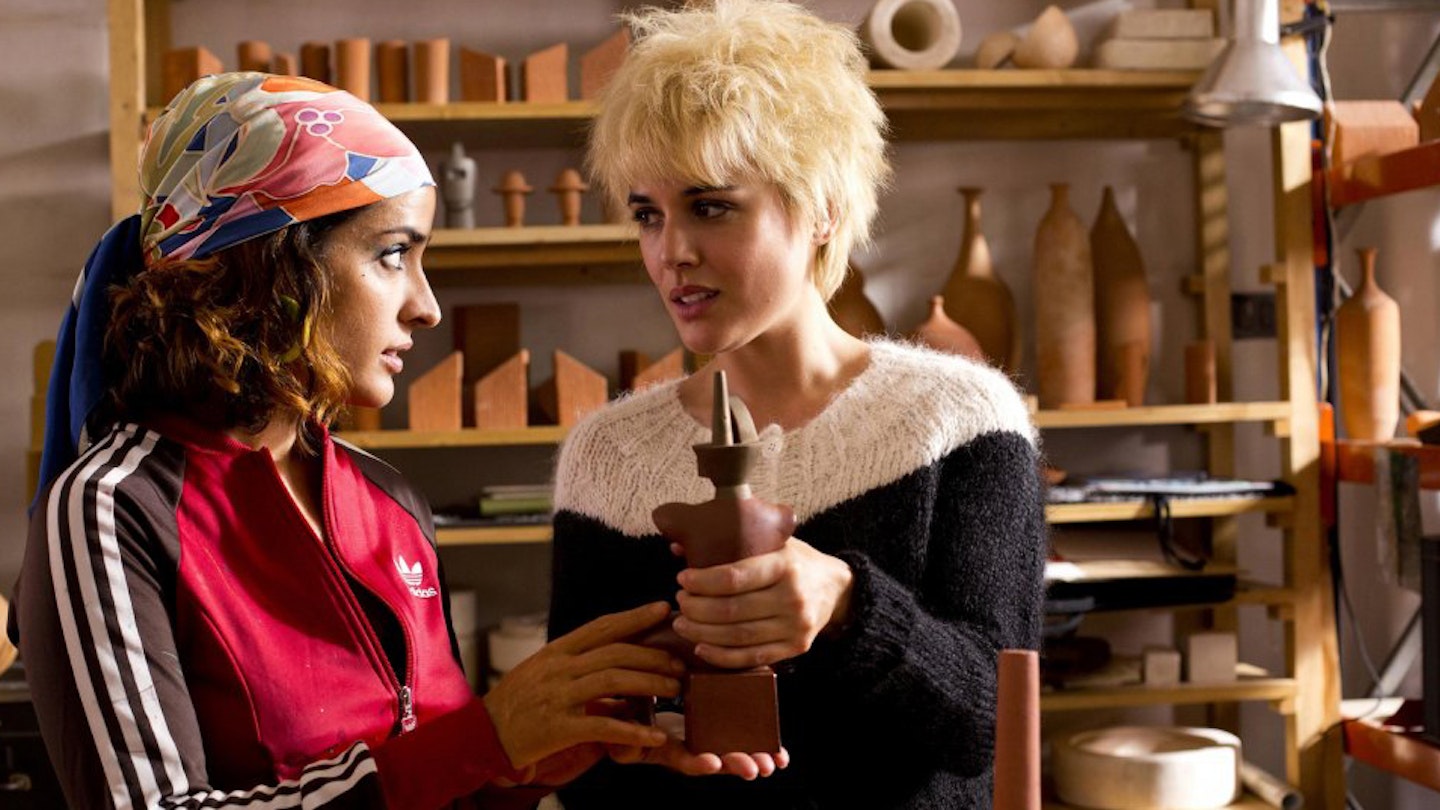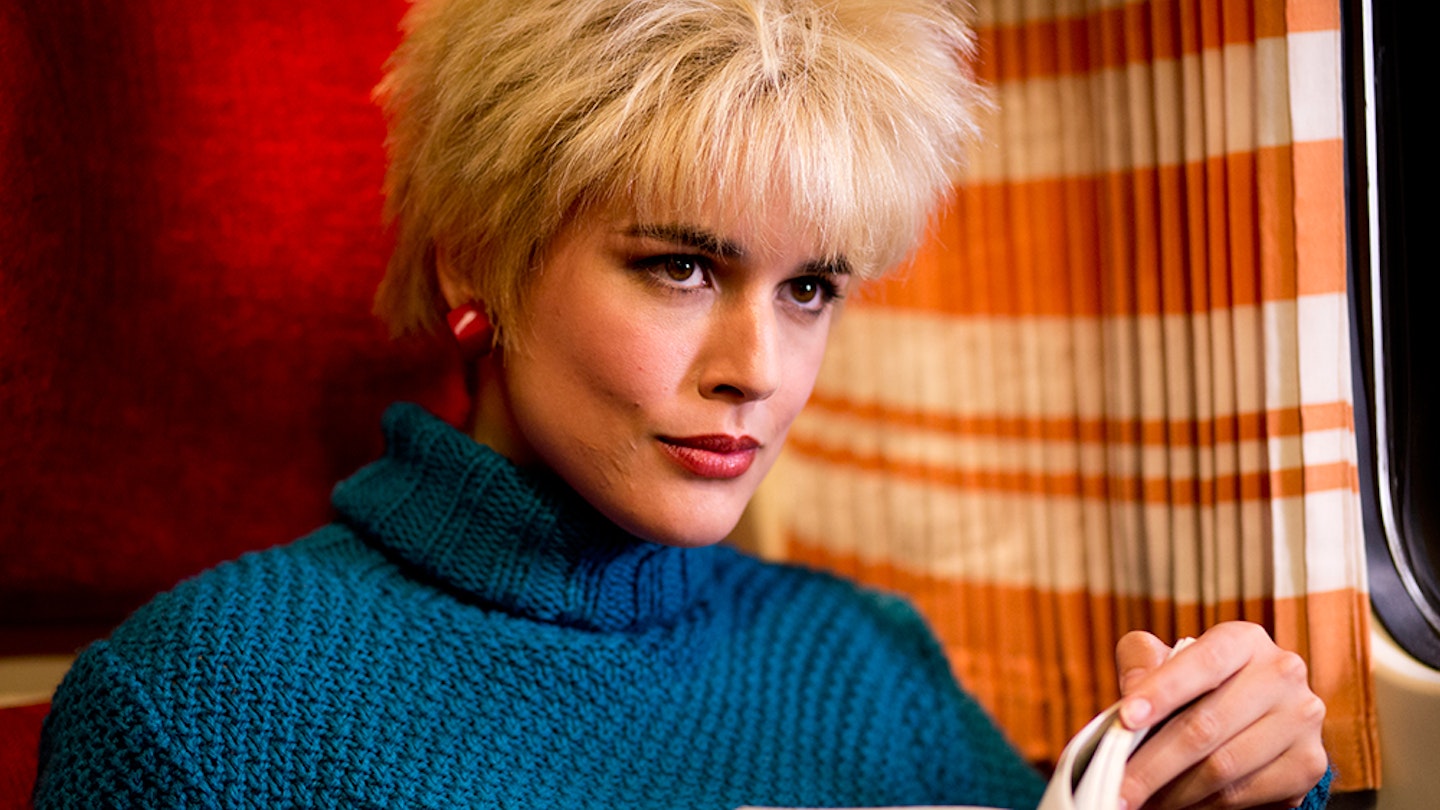Love, loss, melodrama and a dash of camp: Julieta is unmistakably the work of iconic Spanish director Pedro Almodóvar. Although not as crazy and frenetic as the likes of 1988’s Women On The Verge Of A Nervous Breakdown — the film that made his name on the international scene — it’s instead closer in spirit to 1999’s All About My Mother, centred around maternity and the search for a loved one.
Set across two time periods, Emma Suárez plays the older, soulful, and doleful Julieta as she longs for her missing daughter, revisiting memories that begin happily but gradually reveal the source of her pain. An air of mystery feeds the tension: how did Julieta and her daughter part company? And what exactly went on with the father? Despite this, Julieta’s chief pleasures are in simple storytelling and strong characters: this is a film about people, and how they handle the problems in their lives.
As we might expect from her demeanour, the flashbacks into Julieta’s ’80s past are a good deal more exciting than her present. Beautifully played by Adriana Ugarte, the young Julieta is a single, punky teacher who meets two men on a long, nighttime train journey. One is awkward and older, nervously attempting to strike up a conversation with her. The other is a handsome young fisherman, Xoan (Daniel Grao), in the dining car. Who to chat to? Julieta’s choice is a fateful one that sends her story spinning in a romantic direction, but leaves
her full of regret and guilt at the same time.
It's a celebration of elegance and good living as well as motherly love and romance.
The decision also bring her into contact with Almodóvar regular Rossy de Palma, who plays Xoan’s imposing housekeeper, Marian, who takes to looming over Julieta in a disapproving fashion, and warning her off Xoan in thinly veiled terms. De Palma’s unforgettable features will raise an instinctive laugh for fans of her work in everything from Women On The Verge... to Tie Me Up! Tie Me Down!, and she brings delightful dark comedy to the film.
Slightly less involving are Julieta’s family dramas, namely a sickly mother and a father who seems to be very close with his housekeeper. This is a world in which men seek comfort where they can: like most of Almodóvar’s men, those in Julieta feel a pressing need for young, vibrant women in their lives. Women, meanwhile, are dominated by their attachment to family and emotions: the older, sadder Julieta is a slave to hers, having been repressing feelings about her daughter for years. There is hope, however: her present-day boyfriend Lorenzo (Darío Grandinetti) is heroically understanding and represents a solid potential future where support and kindness are more important than passion and unpredictability.
Despite its downbeat heroine, the aesthetics are visually bright and cheerful,
from enviable designer Madrid apartments to fashions sported by the stylish Julieta in both eras. There are also bursts of humour — as ever the director can find gentle comedy in tragedy — and as much colour and character in bad times as in good. Julieta may have a hard-luck story to tell, but it’s related with a light touch — it’s a celebration of elegance and good living as well as motherly love and romance.


